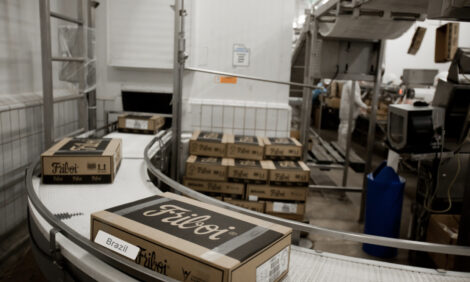



China opens anti-dumping probe into EU pork
Probe targeted at Spain, the Netherlands, France and DenmarkChina has opened an anti-dumping investigation into imported pork and its by-products from the European Union, a step that appears mainly targeted at Spain, the Netherlands, France and Denmark in response to curbs on its electric vehicle exports, reported Reuters.
The investigation announced by China's commerce ministry on Monday will focus on pork intended for human consumption, such as fresh, cold and frozen whole cuts, as well as pig intestines, bladders and stomachs. The probe will begin on June 17.
It was prompted by a complaint submitted by the China Animal Husbandry Association on June 6 on behalf of the domestic pork industry, the ministry said.
Following the European Commission's June 12 announcement that it would impose anti-subsidy duties of up to 38.1% on imported Chinese cars from July, global food companies have been on high alert for retaliatory tariffs from China, owing to reports in the country's state media.
The state-backed Global Times newspaper first reported late last month that Chinese firms planned to ask authorities to open an anti-dumping investigation into some European pork products, citing an unidentified "business insider".
That was followed by a second report in the same outlet on June 8 requesting officials probe European dairy imports.
Chinese authorities have previously dropped hints about possible retaliatory measures through state media commentaries and interviews with industry figures.
China imported $6 billion worth of pork in 2023, including offal, with the EU accounting for more than half, according to customs data.
Spain accounted for $1.5 billion worth of outbound swine shipments from the bloc, almost three times as much as second and third ranking the Netherlands and Denmark, which exported $620 million and $550 million of pork products, respectively.
Growing alarm over Chinese industrial overcapacity flooding the EU with cheap products, including EVs, is opening a new front in the West's trade war with Beijing, which began with Washington's import tariffs in 2018.
EU trade policy is turning increasingly protective against the global ramifications of China's production-focused, debt-driven debt model.
Governments typically place anti-dumping duties on imported goods when they suspect the item in question is being sold for less than it cost to produce in order to protect domestic firms.
European pork producers should be able to keep exporting to China tariff-free while the investigation is underway, pending a decision and a tariff announcement by the Chinese side.
The commerce ministry said that the investigation should be completed by June 17, 2025, but could be extended by another six months if required.









